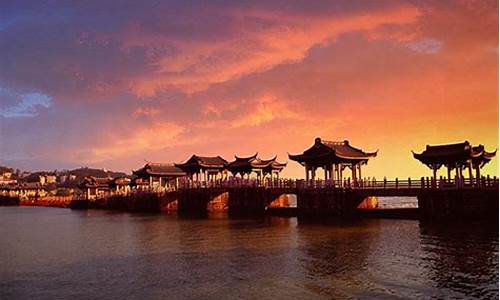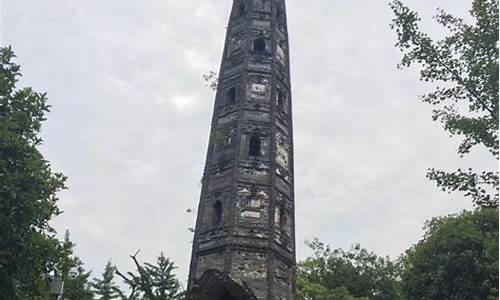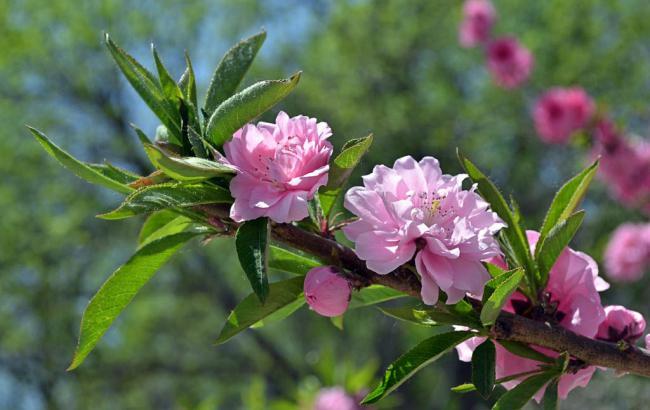您现在的位置是: 首页 > 游览路线 游览路线
成都旅游攻略英语作文_成都旅游攻略英语作文80词
佚名 2024-06-14 人已围观
简介成都旅游攻略英语作文_成都旅游攻略英语作文80词欢迎大家加入这个成都旅游攻略英语作文问题集合的讨论。我将充分利用我的知识和智慧,为每个问题提供深入而细致的回答,希望这能够满足大家的好奇心并促进思考。1.??????ι??????????2.英语作文关于旅游,那个地方最好,有什么特别的.成都3.求一篇介绍成都景点的英语作文,四百字以上??????ι??????????ChengduChengd
欢迎大家加入这个成都旅游攻略英语作文问题集合的讨论。我将充分利用我的知识和智慧,为每个问题提供深入而细致的回答,希望这能够满足大家的好奇心并促进思考。
1.??????ι??????????
2.英语作文关于旅游,那个地方最好,有什么特别的.成都
3.求一篇介绍成都景点的英语作文,四百字以上

??????ι??????????
Chengdu
Chengdu, the capital of Sichuan Province, lies in the hinterland of the Chengdu Plain, in central Sichuan. Covering a total land area of 12,400 square kilometers, Chengdu has a jurisdiction of over 7 districts, 4 cities and 8 counties. By the end of 1999, the population of Chengdu had reached 10.036 million, of which 3.30 million were urban residents. Chengdu enjoys a long history. 2,500 years ago, Kaiming IX, king of ancient Shu in the Zhou Dynasty (11th century 256BC), started to set up the capital in Chengdu. "A town was built in this area in the first year and the capital in the second year, so the ancestor named the city as Chengdu, which means to become a capital. Later on, Chengdu gradually became one of the most important centers of politics, economy and culture in China. It has been the capital for the feudal dynasties five times and twice for the peasant uprising regimes, known as Dashu and Daxi. As early as in the Han Dynasty (206BC-220AD)), Chengdu began to enjoy the fame of one of the Top Five Capitals. In the Tang Dynasty (618-907), Chengdu was reputed as the Yang (Yangzhou) first, yi (Chengdu) second; it had by then became the economic center just after Yangzhou. In the Western Han Dynasty (206BC-8AD), brocades produced in Chengdu were very popular in China. So Chengdu was also called the City of Brocade. In the Five Kingdoms Period (907-960), Mengchang, king of the Houshu Kingdom, decreed to plant hibiscuses on the protective wall of the city, so Chengdu was also called the City of Hibiscus. As one of China's famous historical and cultural cities, Chengdu enjoys rich tourist resources. 15,500 years ago, a well-known poet in the Jin Kingdom, Zuo Si extolled Chengdu as lofty and pretty. This city has also gained the eulogium by both Li Bai, the poet immortal and Du Fu, the poet sage. With rich cultural heritage and beautiful scenic spots, Chengdu is a peaceful and prosperous city.
[edit] Eat
Sichuan being the most known Chinese food style within China, you will find no shortage of delicious Sichuan food in Chengdu. Most of the food is quite spicy, be sure to order non spicy (不要辣 bú yào là) or little spicy (微辣 wēi là) food, at least if you are not accustomed to it yet, or have a bottle of peanut milk ready to quell the fire. The local king of kings is the Hotpot, basically a big pot of oil, water and spices simmering in a hole in the middle of your table. Patrons choose from a big variety of skewered food including veggies, sea-weed, fish, beef, chicken, and dog's meat and proceed to boil them in the oil. After the meal, your bill will be calculated by counting the skewer-sticks.
英语作文关于旅游,那个地方最好,有什么特别的.成都
Chengdu is the capital of "Heavenly State" , habitat of giant pandas and city of cotton-rose hibiscus. Located in the west of Sichuan Basin and in the center of Chengdu Plain, Chengdu covers a total area of 12.3 thousand square kilometres with a population of over 11 million.Benefiting from Dujiangyan Irrigation Project which was constructed in 256 B.C., Sichuan Province is reputed as "Tian Fu Zhi Guo", literally a place richly endowed with natural resources. Chengdu, as the capital, is extremely productive. The Min and Tuo Rivers, two branches of the Yangtze River, connected to forty other rivers, supply an irrigation area of more than 700 square kilometres with 150-180 million kilowatts of water. Consisting of abundant mineral resources, the land is extremely fertile.
求一篇介绍成都景点的英语作文,四百字以上
Chengdu
Chengdu, the capital of Sichuan Province, lies in the
hinterland of the Chengdu Plain, in central Sichuan. Covering a total
land area of 12,400 square kilometers, Chengdu has a jurisdiction of
over 7 districts, 4 cities and 8 counties. By the end of 1999, the
population of Chengdu had reached 10.036 million, of which 3.30 million
were urban residents. Chengdu enjoys a long history. 2,500 years ago,
Kaiming IX, king of ancient Shu in the Zhou Dynasty (11th century
256BC), started to set up the capital in Chengdu. "A town was built in
this area in the first year and the capital in the second year, so the
ancestor named the city as Chengdu, which means to become a capital.
Later on, Chengdu gradually became one of the most important centers of
politics, economy and culture in China. It has been the capital for the
feudal dynasties five times and twice for the peasant uprising regimes,
known as Dashu and Daxi. As early as in the Han Dynasty (206BC-220AD)),
Chengdu began to enjoy the fame of one of the Top Five Capitals. In the
Tang Dynasty (618-907), Chengdu was reputed as the Yang (Yangzhou)
first, yi (Chengdu) second; it had by then became the economic center
just after Yangzhou. In the Western Han Dynasty (206BC-8AD), brocades
produced in Chengdu were very popular in China. So Chengdu was also
called the City of Brocade. In the Five Kingdoms Period (907-960),
Mengchang, king of the Houshu Kingdom, decreed to plant hibiscuses on
the protective wall of the city, so Chengdu was also called the City of
Hibiscus. As one of China's famous historical and cultural cities,
Chengdu enjoys rich tourist resources. 15,500 years ago, a well-known
poet in the Jin Kingdom, Zuo Si extolled Chengdu as lofty and pretty.
This city has also gained the eulogium by both Li Bai, the poet immortal
and Du Fu, the poet sage. With rich cultural heritage and beautiful
scenic spots, Chengdu is a peaceful and prosperous city.
一楼的 你算了吧。你没看见他说“求一篇”了吗。注重礼貌是好,但我觉得提问者已经很好了 Chengdu, the capital of Sichuan Province, lies in the hinterland of the Chengdu Plain, in central Sichuan. Covering a total land area of 12,400 square kilometers, Chengdu has a jurisdiction of over 7 districts, 4 cities and 8 counties. By the end of 1999, the population of Chengdu had reached 10.036 million, of which 3.30 million were urban residents. Chengdu enjoys a long history. 2,500 years ago, Kaiming IX, king of ancient Shu in the Zhou Dynasty (11th century 256BC), started to set up the capital in Chengdu. "A town was built in this area in the first year and the capital in the second year, so the ancestor named the city as Chengdu, which means to become a capital. Later on, Chengdu gradually became one of the most important centers of politics, economy and culture in China. It has been the capital for the feudal dynasties five times and twice for the peasant uprising regimes, known as Dashu and Daxi. As early as in the Han Dynasty (206BC-220AD)), Chengdu began to enjoy the fame of one of the Top Five Capitals. In the Tang Dynasty (618-907), Chengdu was reputed as the Yang (Yangzhou) first, yi (Chengdu) second; it had by then became the economic center just after Yangzhou. In the Western Han Dynasty (206BC-8AD), brocades produced in Chengdu were very popular in China. So Chengdu was also called the City of Brocade. In the Five Kingdoms Period (907-960), Mengchang, king of the Houshu Kingdom, decreed to plant hibiscuses on the protective wall of the city, so Chengdu was also called the City of Hibiscus. As one of China's famous historical and cultural cities, Chengdu enjoys rich tourist resources. 15,500 years ago, a well-known poet in the Jin Kingdom, Zuo Si extolled Chengdu as lofty and pretty. This city has also gained the eulogium by both Li Bai, the poet immortal and Du Fu, the poet sage. With rich cultural heritage and beautiful scenic spots, Chengdu is a peaceful and prosperous city
求采纳~~~
好了,今天关于“成都旅游攻略英语作文”的话题就讲到这里了。希望大家能够对“成都旅游攻略英语作文”有更深入的认识,并且从我的回答中得到一些帮助。









